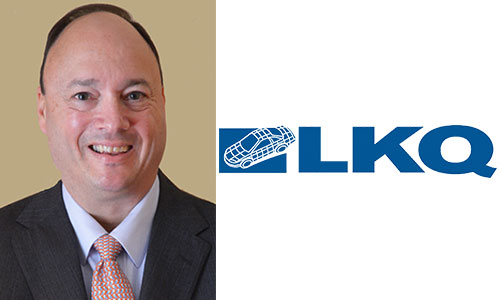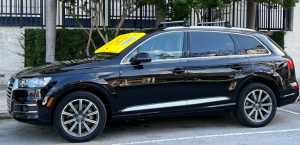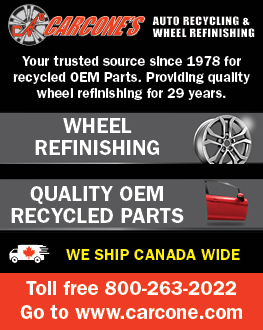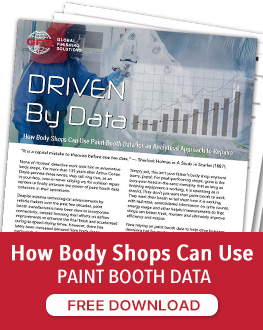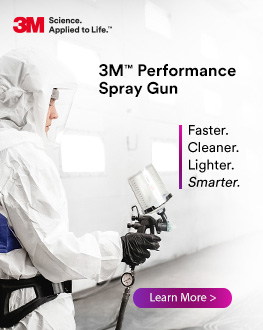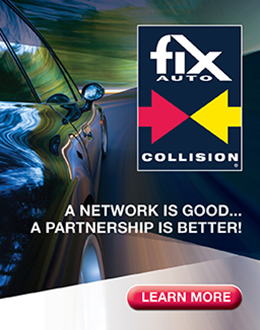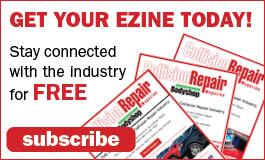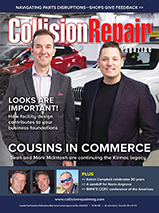By Jeff Sanford
Toronto, Ontario — December 12th, 2017 — In this week’s Tuesday Ticker AutoCanada signs a deal with GM, LKQ buys another big Euro firm, Akzo to use end-of-life tires in coatings, and much, much more!
AutoCanada
AutoCanada announced two new interesting agreements that will change the ownership structure of several GM dealerships across Canada. The company has signed a Public Company Master Agreement (PCMA) with GM Canada that permits AutoCanada’s direct ownership and control of GM Canada dealerships. It has also reached an agreement with CanadaOne Auto Group. This second deal will see AutoCanada assume control of five of the nine GM Canada dealerships where it held a majority equity stake (but held no voting rights). At the same time CanadaOne Auto Group will buy up AutoCanada’s interest in four other dealerships. Under the newly negotiated agreements, five dealerships will become majority owned and controlled by AutoCanada and the remaining four by CanadaOne Auto Group.
An interesting twist to the deals: Under the terms of the PCMA, each general manager in the AutoCanada/GM Canada dealerships will be required to own a minority equity position in their dealership. This will ensure that the general manager will have vested interests in the dealership they manage. AutoCanada will also receive a one-time payment of about $23 million from CanadaOne Auto Group. The transaction is expected to close on January 2, 2018.
LKQ
Major U.S. recycled parts firm LKQ Corporation continues to expand globally. The company has just announced yet another big European deal. The company has signed a definitive agreement to acquire German firm Stahlgruber GmbH from Stahlgruber Otto Gruber AG. The deal will close for approximately €1.5 billion.
Headquartered in Germany, Stahlgruber is a European wholesale distributor of aftermarket spare parts for passenger cars, tools, capital equipment and accessories with operations in Germany, Austria, the Czech Republic, Italy, Slovenia, and Croatia. According to a press release announcing the deal, Stahlgruber’s facilities include 228 sales centers, six warehouses, and an approximately 128,000 square meter advanced logistics center in Germany that serves more than 100,000 clients.
LKQ management indicated they expect to complete the transaction late in the first quarter or early in the second quarter of 2018, subject to required regulatory approvals. “This transformative acquisition solidifies LKQ as a leading Pan-European aftermarket mechanical parts distributor, and further enhances our global diversification strategy,” said Dominick Zarcone, president and CEO of LKQ. “Stahlgruber has a history of delivering above-market growth and its stellar industry reputation is an ideal fit with our culture; we are extremely proud to welcome the approximately 6,600 Stahlgruber employees to the LKQ family. Importantly, we believe that our combined efforts will create tremendous long-term value for our customers and stockholders and growth opportunities for our collective team members.”
John Quinn, CEO and managing director of LKQ Europe, was quoted as saying, “Stahlgruber will create a contiguous footprint and serve as an additional strategic hub for our European operations, allowing for continued improvement in procurement, logistics and infrastructure optimization.” Heinz Reiner Reiff, Chief Executive Officer of Stahlgruber Otto Gruber AG, commented: “I am very excited about the meaningful benefits that will occur by combining our complementary cultures and industry leading management, which together position Stahlgruber to achieve the continued growth of its European businesses. Our acceptance of LKQ shares as part of the consideration emphasizes our belief in the value of this combination.”
Stahlgruber’s 2017 annual revenue is estimated to be approximately €1.6 billion. LKQ expects the transaction to be accretive to its adjusted diluted earnings per share during the first year after the closing. LKQ intends to finance the acquisition with the proceeds from planned debt offerings, borrowings under its existing revolving credit facility and the direct issuance to Stahlgruber’s owner of 8,055,569 newly issued shares of LKQ common stock. As of December 1, 2017, LKQ had approximately $1.4 billion of available borrowing capacity under its recently amended credit facility.
AkzoNobel
Danish paint maker AkzoNobel has just signed an interesting deal with a tire recycler. AkzoNobel announced that it will begin making powder coating materials from end-of-life tires under the new cooperation deal with fellow Dutch company Black Bear Carbon.
The so-called ‘recovered carbon black’ (rCB) will be supplied by Black Bear and will be used as pigment in the products developed by AkzoNobel’s powder coatings business. According to AkzoNobel, this is a great way to move away from the fossil fuels typically used to produce coatings. Also this past week, a blogger noted that the Danish paint maker might have a second chance to link up with Axalta Coating Systems now that talks with Nippon Paint Holdings have fallen through.
According to the blogger, “It would have been wiser for Axalta to get Akzo on the hook first before trying to extract something better from Nippon. Maybe Nippon will come back. For now, though, the Dutch company can play hardball.” That is, Axalta and Akzo could resume the talks that were underway before Nippon showed interest in Axalta. The appeal of a deal is still clear. “The potential synergies of a combination are sizable. Analysts reckon these could be at least 250 million euros (USD $298 million) annually,” according to reports.
Related Market News
–Quebec paint distributor Uni-Select recently had its “buy” rating on its stock reissued by analysts at Gabelli in a research report issued to clients.
Major automotive parts maker Delphi Automotive PLC will split into different companies. A new company called Aptiv PLC will be listed on the New York Stock Exchange under the symbol APTV and will focus on new technologies for automated vehicles. The other company, Delphi Technologies PLC, will be based in London and concentrate on producing powertrains. Delphi was split out of General Motors years ago and is one of the world’s biggest auto parts makers. The company now sees the importance of catering to the emerging world of automated vehicles.
–Aptiv will boast revenue of about $12.5 billion and will have 145,000 employees worldwide. Delphi Technologies will end up with revenue around $5 billion and will employ 20,000 people in 24 different countries. It will trade under the stock symbol DLPH. An analyst with RBC Capital Markets issued an “outperform” rating on stock in Aptiv and set a price target of $100 on shares. The analyst tagged Delphi Technologies with a price target of $60 per share.
A report from Reuters notes that Aptiv will attempt to cut the cost of self-driving cars by more than 90 percent to around $5,000 by 2025. The current cost of a self-driving hardware and software package range from $70,000 to $150,000. But it is hoped cost of that “autonomous driving stack” will come down to about $5,000 by 2025. Management at the new company said the hope to re-engineer the basic vehicle platform through the accommodation of electric motors, batteries and self-driving sensors. It is thought that these future vehicle platforms, “… will have fewer components, but much more software, better communications capability and advanced safety systems.” The high cost of self-driving systems means individual customers aren’t likely to see such systems installed in personal vehicles in much volume before 2025 according to reports.
-The U.S. auto industry experienced its first annual decline in sales since the year GM and Chrysler went bankrupt, but few in the industry are complaining. It is expected sales will drop again in 2018, but with the number of cars moving off lots at record highs, there are relatively few worries about the health of the industry.
Sales are down only 1.5 percent through the first 11 months of 2017, far less than the rapid declines in the Great Recession. Overall sales will come in around 17.3 million vehicles. The chairman of the National Automobile Dealers Association noted that, “Every dealer in America… would be thrilled” with annual sales of more than 16 million.
Consumers continue to shift from buying sedans, coupes and convertibles. Sport utility vehicles and trucks are the models that are moving. Profits at OEMs continue to rise as a result (SUVs generating more in revenue for manufacturers than cars). Some had worried that 2017 would see record-high inventory levels in the industry, leading to big discounts or cuts in production. A series of major hurricanes washed away those concerns, as almost one million vehicles were destroyed. Consumers ended up buying a 600,000 cars and trucks as a result. About two thirds of those were new. Dealer lots were cleared out. The practice of dumping extra vehicles into the fleets of rental car companies as a way of “papering over” weak demand was also reduced this year. Often these cars would later flood the used-vehicle market. It is said that Fiat Chrysler has particular success in curbing this practice. The company managed to reduce fleet sales by 25 percent in November. Overall just 16 percent of OEM production went to fleet sales, a remarkable decrease from the last time demand was falling–then, up to half of OEM deliveries went to fleet customers.



